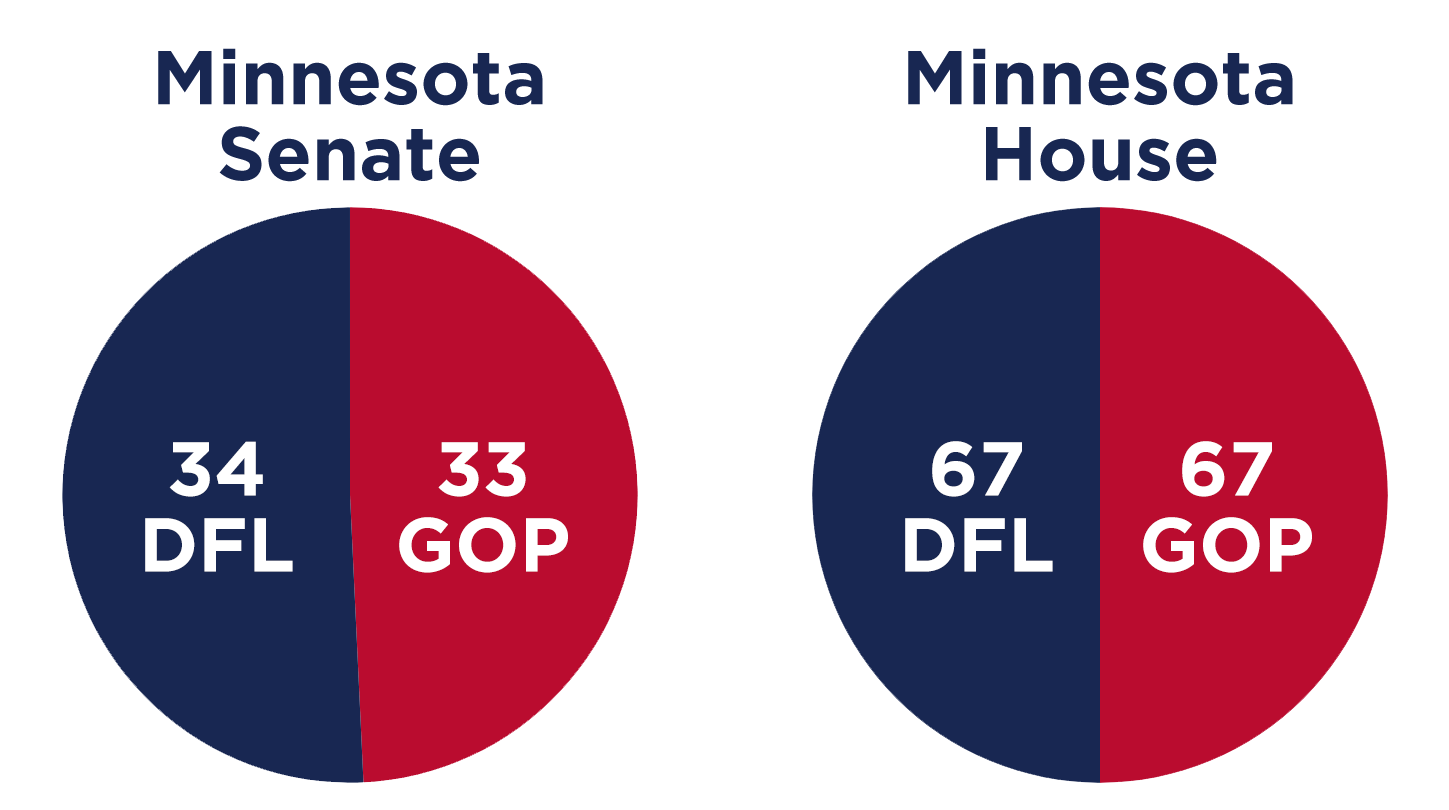Balance in St. Paul and its impact on manufacturers
The results of the 2024 elections made it clear that the economy matters to voters. This is good for manufacturers around the state who have been hit particularly hard with the anti-business policies coming out of single-party control over the last two years. $10 billion in new taxes, a paid leave program that raised payroll taxes, and extended producer responsibility requirements are just a few issues of consequence to manufacturers.
Minnesota’s legislative bodies are split in historic fashion. The Congressional delegation has four Republicans and four Democrats; the Minnesota Senate has 34 DFLers and 33 GOPers and the Minnesota House is split 67/67.

The dynamics of a split Legislature in Minnesota won’t be easy. But restoring balance to the dialogue in St. Paul is critical. Legislators on both sides of the aisle will have to work together – listen to each other and their constituents – and reach consensus.
What’s on the list for the 2025 Legislative Session?
The Minnesota Senate and House are constitutionally bound to balance the budget this legislative session or face government shut down. The state started the last biennium with a nearly $18 billion surplus, but instead of using these funds to fuel economic growth, most were dedicated to 37% in spending increases, putting the state in a structural deficit for the coming fiscal years. In the first week of December, Minnesota Management and Budget will release the budget forecast, which will project financial conditions and help align resources with policy objectives heading into session.
Passing a reasonable budget and keeping costs and regulations in check for businesses will be key priorities for the Minnesota Chamber this year. We will ask the Legislature to focus on pro-growth tax policies, such as conforming to a likely federal tax bill on tax provisions to help encourage greater investment in Minnesota operations and enhancing the R&D tax credit. We also hope that the divided Legislature will produce fewer regulations and mandates placed on business.
Although modest spending growth could still be possible, the Legislature must also focus on spending reforms to prevent government fraud and waste. The Office of the Legislative Auditor has produced many reports detailing hundreds of millions in lost taxpayer dollars. Legislators should be required to respond to these reports and be held accountable.
The Minnesota Chamber of Commerce remains committed to advocating for pro-growth policies. One of our top priorities is enacting environmental permitting reforms, to make the process more efficient. We made modest progress on this in the last legislative session and hope that a more bipartisan environment will help spur action. We will also continue to focus on policies to build and retain a skilled workforce; control health care and energy costs; and overall, encourage investment and innovation in Minnesota’s private sector.
As your statewide trade association, the Minnesota Chamber is committed to advancing the interests of manufacturers across the state to ensure a strong economic future for your company, your employees and Minnesota.
Recommended Articles
The Minnesota Chamber of Commerce released this letter on behalf of more than 60 CEOs of Minnesota-based companies today.
The...



